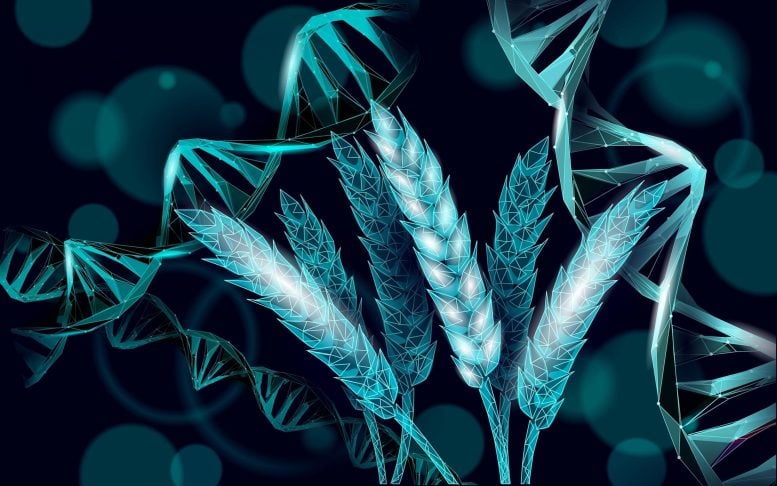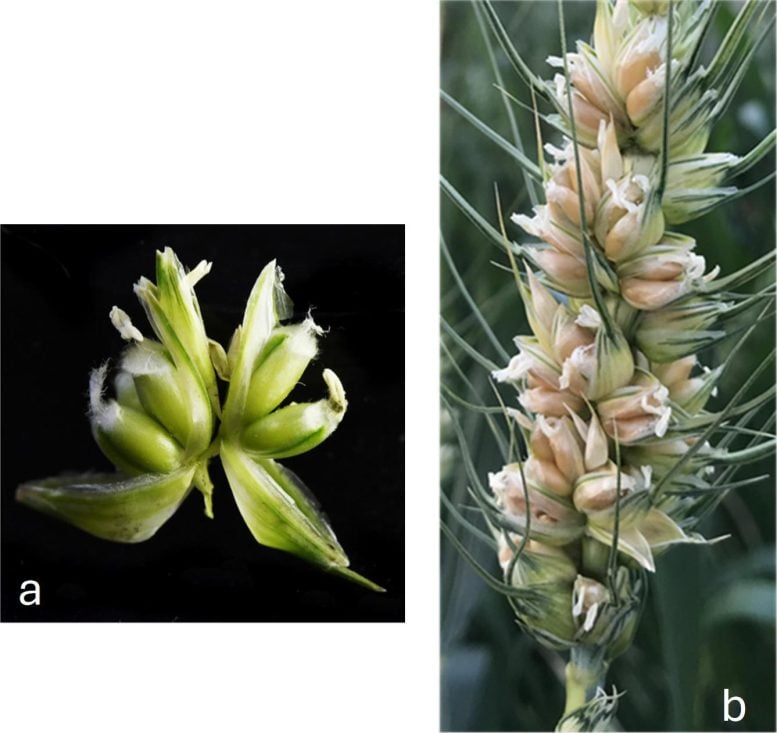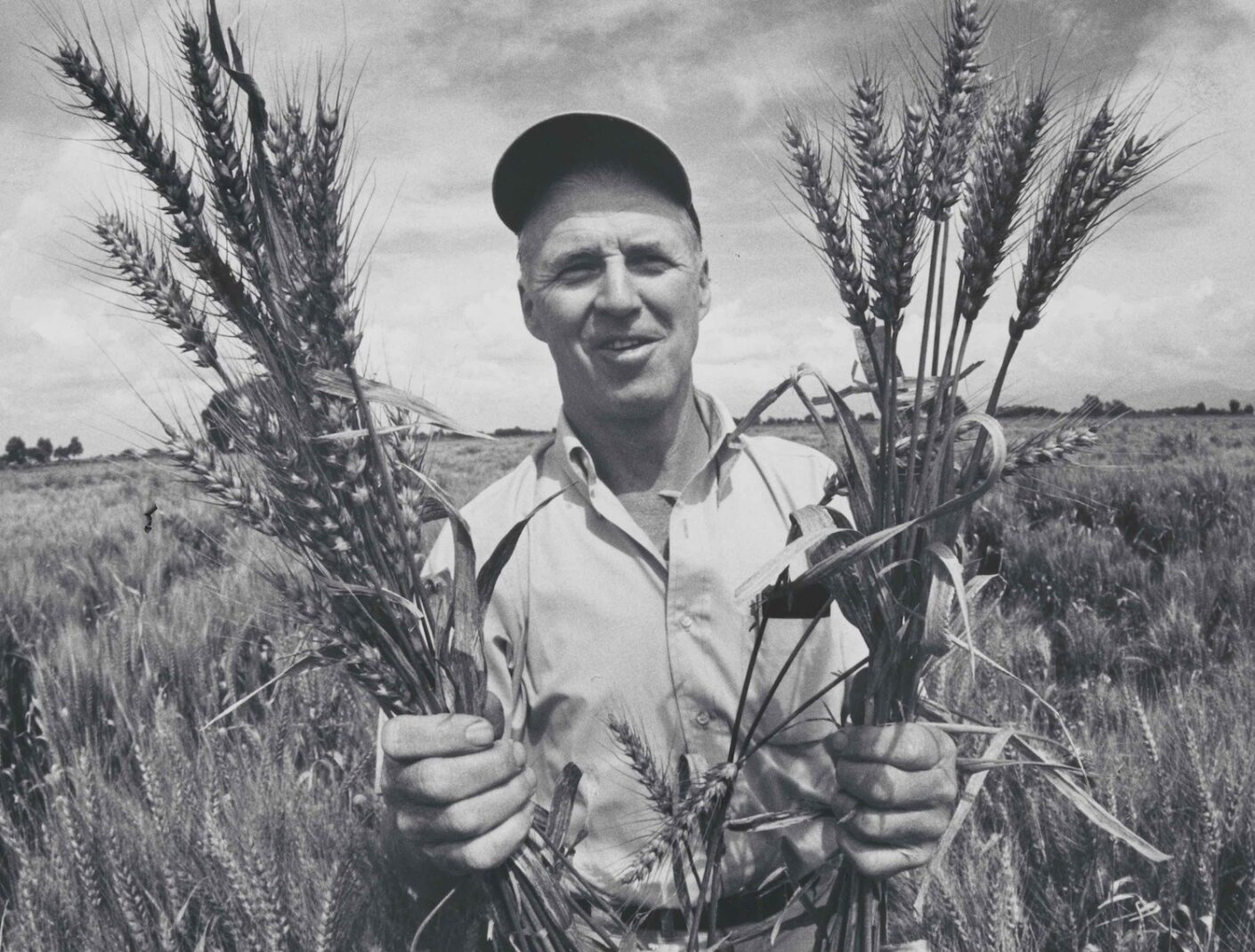
Posted on 10/21/2025 6:50:13 AM PDT by Red Badger

A once-silent wheat gene may hold the secret to growing far more grain from every field. Credit: Shutterstock
======================================================================
Scientists at the University of Maryland have uncovered the genetic key behind a rare wheat variety that produces three grains where ordinary wheat grows just one.
The team found that a normally inactive gene, WUSCHEL-D1, becomes active early in flower development, causing the plant to form extra ovaries that can each grow into a grain. This discovery could allow breeders to develop new, higher-yielding wheat varieties without needing more land or resources, offering a major step toward meeting global food demands in a changing climate.
Unlocking a Genetic Secret in Wheat
Researchers at the University of Maryland have identified the gene responsible for a rare wheat variety that develops three ovaries in each flower instead of just one. Because every ovary can grow into a grain, this finding could greatly increase the amount of wheat produced per acre. The discovery was detailed in the Proceedings of the National Academy of Sciences on October 14, 2025.
The unusual three-ovary trait was first found in a naturally occurring mutant of common bread wheat, but scientists did not initially know what caused it. To uncover the genetic difference, the Maryland team created a precise map of the mutant wheat’s DNA and compared it with that of ordinary wheat. Their analysis revealed that a normally inactive gene, known as WUSCHEL-D1 (WUS-D1), had been activated. When WUS-D1 turns on early during flower formation, it enlarges the floral tissue and allows the plant to produce additional female organs such as pistils or ovaries.

A representative MOV-wheat spikelet (a) and spike (b) showing the effect of the Mov-1 locus on grain number. Regular bread wheat has one grain per spikelet. Credit: Vijay Tiwari, University of Maryland
============================================================================
Turning Genes Into Yield Boosters
If scientists and breeders can learn to trigger this same process, they may be able to develop new wheat varieties that produce more kernels on each plant. Even small increases in kernel number could have a major impact on the world’s food supply.
“Pinpointing the genetic basis of this trait offers a path for breeders to incorporate it into new wheat varieties, potentially increasing the number of grains per spike and overall yield,” said Vijay Tiwari, Associate Professor of Plant Sciences and co-author of the study. “By employing a gene editing toolkit, we can now focus on further improving this trait for enhancing wheat yield. This discovery provides an exciting route to develop cost-effective hybrid wheat.”
Feeding the Future Without More Land
That’s important because wheat is one of the world’s staple crops, feeding billions of people every day. As global demand for wheat continues to rise, climate change, limited farmland, and population growth make it increasingly difficult to increase production using traditional methods. This discovery could give breeders a powerful new tool to boost yields without needing more land, water, or fertilizer.
The discovery of WUS-D1 could also lead to the development of similar multi-ovary varieties of other grain crops.
Reference:
“WUSCHEL-D1 upregulation enhances grain number by inducing formation of multiovary-producing florets in wheat”
by Adam Schoen, Guilherme V. Yoshikawa, Parva Kumar Sharma, Alex Mahlandt, Yi Chen, Huajin Sheng, Leon Kochian, Peng Gao, Daoquan Xiang, Teagen D. Quilichini, Prakash Venglat, Sheng Wang, Inderjit Singh Yadav, Robert Sablowski, Yuqi Wang, Peng Zhang, Annabel Whibley, Amy Hill, Yong Gu, Daniel Rodriguez-Leal, Weifeng Luo, Yiping Qi, Nathan Meier, Anmol Kajla, Matthew Willman, Gina Brown-Guedira, Sheron A Simpson, Ramey C. Youngblood, Amanda Hulse-Kemp, Angus Murphy, Bikram Gill, Cristobal Uauy, Raju Datla, Nidhi Rawat, Scott A. Boden and Vijay Tiwari, 14 October 2025, Proceedings of the National Academy of Sciences.
DOI: 10.1073/pnas.2510889122
==========================================================================
In addition to Dr. Tiwari, other authors of this paper from the University of Maryland Department of Plant Sciences include lead author and faculty assistant Adam Schoen, Professor Yiping Qi, Professor Emeritus Angus Murphy, Associate Professor Nidhi Rawat, Assistant Professor Daniel Rodriguez-Leal, Assistant Research Scientist Weifeng Luo, PhD student Anmol Kajla, Post Doctoral Associate Parva Kumar Sharma, and Alex Mahlandt (a former MS student from Tiwari lab).
This work was supported by the U.S. Department of Agriculture’s National Institute of Food and Agriculture (Awards 13716674 and 13368004), the Australian Research Council (FT210100810), the Royal Society (UF150081), and the Yitpi Foundation. The views expressed in this story do not necessarily reflect the views of these organizations.
Agriculture Ping!...............
It is possible to make plants more efficient food producers.
Hard to know how much more efficient wheat plants will be with this change.
More GMO ... All we need
I wonder if they can do this with other grains like corn, barley, rye and rice?
Whiskey, Beer, saki, etc. would benefit...............
From the original Star Trek series: The Trouble with Tribbles by David Gerrold.
Quatro-Triticale.
Can tribble be far behind?
genetic key behind a rare wheat variety that produces three grains where ordinary wheat grows just one.
So can we assume the “we are overpopulated and need to reduce headcount” crowd has the week off?
We’re already FAT!
Just beware of the Tribbles.
It is possible to make plants more efficient food producers.
The management goal of corn production and other crops is yield, not quality factors for the most part. Yield is even more important than profit. Do you ever hear a farmer talk about quality factors or profit per acre, never in my life time. If you ask them what their average ten year yield was, they would tell you their highest yield. and it was the highest yield they managed for.
I spent 30 years analyzing farm records.
But that is no different than employees managing for highest wage, not net wage. Much of the 2nd wage is spent on childcare, etc
And now everyone can be allergic to wheat.
Everyone is allergic to wheat.
Just some more than others.
We are not cows........
Thanks! Of course, this means three times as much whining about gluten.
Wheat can keep you alive but it’s not part of a proper human diet.
The ancient Egyptians were bread eaters. CT scans of mummies reveal they had diabetes and heart disease, eating (very) ancient grains.
Just what we need: more cholesterol, heart disease, rotten teeth and fat people.................
Dude...
ALL food is gmo...
all of it

That comes from added sugar and soybean products.
Disclaimer: Opinions posted on Free Republic are those of the individual posters and do not necessarily represent the opinion of Free Republic or its management. All materials posted herein are protected by copyright law and the exemption for fair use of copyrighted works.